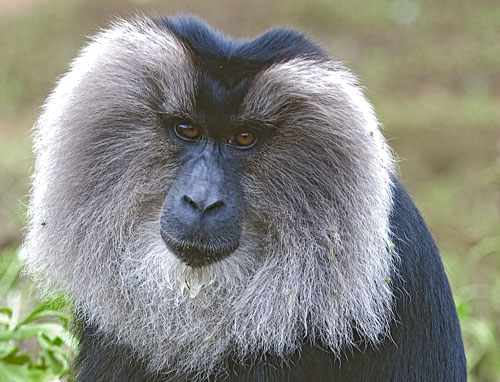|
|
The South
Asian Life & Times - SALT |
|
|||
|
Contents
Art
Threatened
Dwellers
Rom Whitaker
Tee
Time @ Delhi
|
|
||||
|
Endangered Residents of
Western Ghats
Alarm bells are ringing in the Western Ghats. All
is not well with its rich and diverse wildlife. Some of its star residents
are endangered and many more are vulnerable and on their way to becoming
endangered. The world has known for a while that the number of Asian
elephants and tigers is fast declining in India. There are other creatures,
great and small, facing extinction in the Western Ghats. Some are endemic to
the area. The bells are louder for them. The Lion-tailed
macaque Scientific name: Macaca silenus Status: Endangered. Appearance:
Distinctive manes of grey or brown hair, and shiny black coats. The tail of
the lion-tailed macaque can measure nearly two feet in length. Largest single population: in the
Kalakad-Mundanthurai Tiger Reserve, around 300 animals. Food habits:
Eat fruits, seeds, and insects – available yearlong in wet evergreen
forests. Particular favourites are jack fruit and cullenia. Reproduction: Low birth rate.
Females give birth only once in 3 years Major threat: Two things have put
the lion-tailed macaque at risk. First, they seem unable to adapt to the
encroachment of human populations. Second, they have extremely low
reproductive rates. With the loss and fragmentation of forests, diminished
by deforestation, the lion-tailed macaque continues to struggle for its
survival. Its shrinking habitat is too small to support the 40 breeding
animals that are considered the minimum number required to maintain a
healthy gene pool. It is estimated that even the removal of two animals
every year from a population of 50 can drive that population to extinction.
Hunting & poaching are other major threats. Habitat has been lost to tea,
coffee & cardamom plantations and hydroelectric dams. Protection
measures: Conservation of habitat must be the number one priority.
Protection against poaching.
Restoration of species.
|
|||||
|
Copyright © 2000 - 2012 [the-south-asian.com]. Intellectual Property. All rights reserved. |
|||||
